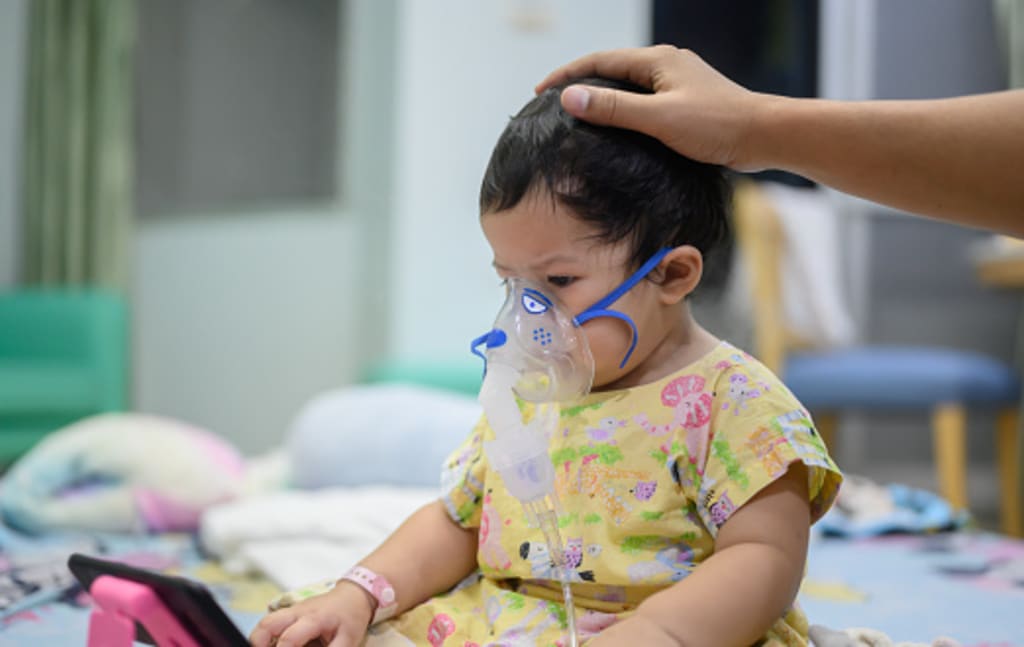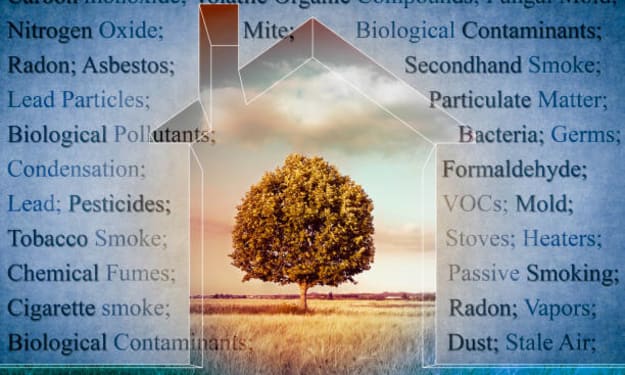Understanding the Impact of Respiratory Syncytial Virus on Infants and Children
RSV

Hey there! Today we're going to talk about something super important for parents and caregivers: Respiratory Syncytial Virus, or RSV for short. If you haven't heard of it before, don't worry - we're here to help you understand what it is and why it's important to know about.
Basically, RSV is a virus that can cause respiratory symptoms in infants and young children, and it can be pretty serious if left untreated. So if you're a parent or caregiver, it's crucial to be aware of the signs and symptoms of RSV, as well as the risk factors and treatment options.
In this article, we'll go over everything you need to know about RSV in a way that's easy to understand, without getting too bogged down in technical jargon. So let's get started!
Symptoms of RSV in infants and children
Alright, let's dive into the symptoms of RSV in infants and children. As I mentioned earlier, RSV is a virus that affects the respiratory system, which means it primarily causes symptoms related to breathing. Here are some of the most common signs of RSV:
- Coughing: RSV can cause a persistent cough, which may be dry or wet.
- Wheezing: This is a high-pitched whistling sound that can be heard when a child breathes. It's caused by narrowing of the airways.
- Difficulty breathing: RSV can make it harder for a child to breathe, which can cause them to breathe rapidly or have shortness of breath.
- Fever: A low-grade fever is common with RSV, but high fevers are less common.
- Nasal congestion: Infants and young children may have a stuffy or runny nose, which can make it harder for them to breathe.
It's important to note that some children with RSV may only have mild symptoms, while others may have more severe symptoms. In some cases, RSV can lead to complications like pneumonia or bronchiolitis, which can be life-threatening.
If your child is experiencing any of these symptoms, it's important to seek medical attention right away. Your doctor can help determine if your child has RSV and provide appropriate treatment.
Risk factors for RSV in infants and children
Now that we've covered the symptoms of RSV, let's talk about the risk factors that can increase a child's chances of getting RSV. Here are some of the most common risk factors:
- Age: Infants and young children are at the highest risk of getting RSV, particularly those under the age of 6 months.
- Prematurity: Babies who are born prematurely are at a higher risk of getting RSV, as their lungs may not be fully developed.
- Underlying health conditions: Children with certain health conditions, such as heart or lung disease, are at a higher risk of developing severe RSV.
- Crowded living conditions: Children who live in crowded conditions, such as daycare centers, are more likely to be exposed to RSV.
- Exposure to tobacco smoke: Children who are exposed to secondhand smoke are at a higher risk of developing RSV.
It's important to note that even if your child does not have any of these risk factors, they can still get RSV. However, understanding these risk factors can help you take steps to reduce your child's risk of exposure to RSV, and to seek medical attention promptly if they develop symptoms.
If you have concerns about your child's risk of getting RSV, be sure to talk to your pediatrician. They can provide personalized recommendations based on your child's individual health history.
Diagnosis and treatment of RSV in infants and children
Now let's talk about how RSV is diagnosed and treated in infants and children. If you suspect that your child has RSV, the first step is to seek medical attention from your child's pediatrician or a healthcare provider. Here's what you can expect during the diagnostic and treatment process:
- Diagnostic tests: To confirm if your child has RSV, your healthcare provider may perform diagnostic tests, such as a nasal swab or a blood test.
- Supportive care: In most cases, treatment for RSV involves providing supportive care to help manage the symptoms. This may include measures such as giving your child plenty of fluids, using a cool mist humidifier, and using over-the-counter medications to help reduce fever and relieve other symptoms.
- Antiviral medications: In some cases, antiviral medications may be used to treat RSV. However, these medications are typically reserved for infants and young children who have severe RSV or are at high risk of complications.
- Prevention strategies: To help prevent the spread of RSV, it's important to practice good hand hygiene, keep your child away from others who are sick, and avoid exposing your child to tobacco smoke. There is also a vaccine available for certain high-risk infants, which can help reduce their risk of severe RSV.
In general, most children with RSV recover fully with appropriate medical care and supportive measures. However, in some cases, RSV can lead to complications such as pneumonia, which may require additional medical treatment.
If you have concerns about your child's treatment or recovery from RSV, be sure to talk to your pediatrician. They can provide guidance and recommendations based on your child's individual health needs.
Impact of RSV on families and society
The impact of RSV is not only felt by the affected infants and children, but it can also have a significant impact on families and society as a whole. Here are some ways that RSV can impact families and society:
- Missed work and school: When a child gets sick with RSV, parents may need to take time off work to care for their child. This can result in missed work days and lost wages. Additionally, if a child needs to stay home from school or daycare due to RSV, parents may need to make alternative childcare arrangements, which can be challenging and costly.
- Increased healthcare costs: Treating RSV can be costly, particularly for families who do not have adequate health insurance. The cost of hospitalization and medication can quickly add up, putting a financial strain on families.
- Emotional stress: Seeing a child sick with RSV can be emotionally stressful for parents and caregivers. In some cases, RSV can lead to severe illness or complications, which can cause significant emotional distress for families.
- Impact on public health: RSV is highly contagious and can spread quickly in daycare centers, schools, and other community settings. This can lead to widespread illness, which can have a significant impact on public health.
To help reduce the impact of RSV on families and society, it's important to take steps to prevent the spread of the virus. This includes practicing good hand hygiene, avoiding contact with sick individuals, and keeping infants and young children away from crowded public settings during peak RSV season. By working together to prevent the spread of RSV, we can help reduce the impact of this virus on families and society as a whole.
In conclusion, RSV is a common virus that can affect infants and young children, particularly during the fall and winter months. While most cases of RSV are mild and can be treated with supportive care, severe cases can lead to complications and require medical treatment.
Understanding the symptoms, risk factors, diagnosis, and treatment of RSV can help parents and caregivers take steps to reduce their child's risk of exposure to the virus, and seek medical attention promptly if they develop symptoms.
Additionally, the impact of RSV is not only felt by affected children and their families, but it can also have a significant impact on society as a whole. By taking steps to prevent the spread of RSV, we can help reduce the impact of this virus on families and society.
If you have concerns about your child's risk of getting RSV or need guidance on managing their symptoms, be sure to talk to your pediatrician. They can provide personalized recommendations based on your child's individual health history.
About the Creator
Sivakumar Micheal
Go Green Save the Earth
Let's make a different together
I'm a person concerned about the preservation and protection of the natural environment and works to promote sustainable practices and policies.






Comments
There are no comments for this story
Be the first to respond and start the conversation.